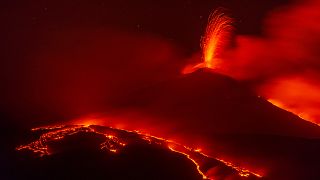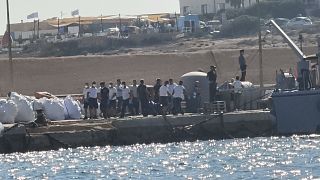Libya
The National Oil Corporation (NOC) of Libya announced the resumption of the El Sharara field - the largest oil field in the country - after lifting the status of "force majeure" on Sunday.
The National Oil Corporation said in a statement that it had given instructions to start production arrangements, after reaching an "honour agreement" under which forces loyal to eastern Libya strongman Khalifa Haftar, would commit to ending all obstacles and ensuring that security breaches don't occur.
It comes after positive consultations, under the auspices of the United Nations Mission in Libya, which took place last month in the Egyptian city of Hurghada, on the Red Sea coast, which dealt with security arrangements for oil fields and ports.
Abduljalil Mayouf, an oil and gas consultant in the interim government, said the El Sharara oil field would return to production soon, but it would need some routine maintenance before doing so.
El Sharara oil field is Libya's largest oil field located in the Murzuq Desert, south west of the country. It was discovered in 1980 and developed by OMV Petrom. The oil field is currently operated and owned by Repsol.
The field produces about a third of Libya's crude oil production, while official estimates say that its reserves amount to nearly three billion barrels of oil, and thus it is considered one of the largest oil fields in the country, next to the El Feel field.
Abdul Rahim Al-Tarhouni, an expert on the Libyan oil sector, said the 300,000 barrels, which will be produced on a daily basis from the El Sharara field, would be exported abroad and its revenues would return to the Libyan state.
Al-Tarhouni said the Zawiya refinery, located in the north west of the country, depended mainly on oil extracted from El Sharara and El Feel oil fields.
He said the Zawiya refinery would have a major role in solving a diesel shortage that has plagued the country for months.
Most Libyan oil production fields and its export ports are located in areas under the control of Haftar's forces, in which work was suspended nearly nine months ago.
Last August, the National Oil Corporation in Libya estimated the total losses, due to the suspension of operations at oil installations, at about $8.2bn.













00:52
NGO rescues migrants allegedly thrown into sea off Libya
00:51
Turkey, Italy, and Libya hold trilateral talks on migration and security
00:59
Zambia signs $1.1 Billion deal to build major oil refinery in Copperbelt
Go to video
Greece cracks down on irregular migration, says it’s "not an open corridor to Europe"
01:16
Greece FM Gerapetritis meets Libyan strongman Haftar in Benghazi
01:24
EU to seek tougher measures from Libyan authorities on Mediterranean migrant sea crossings